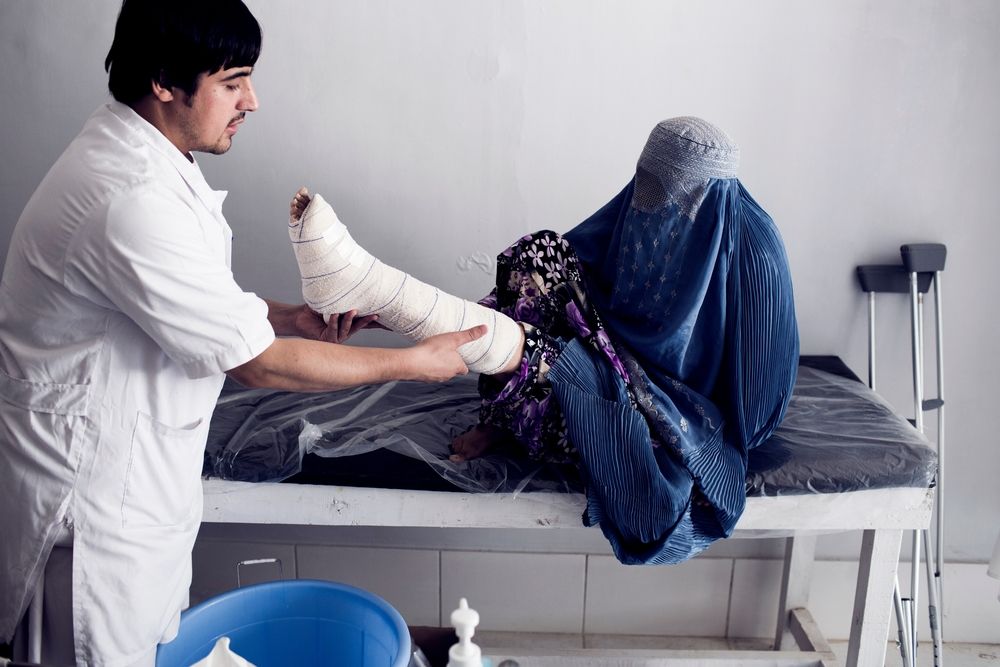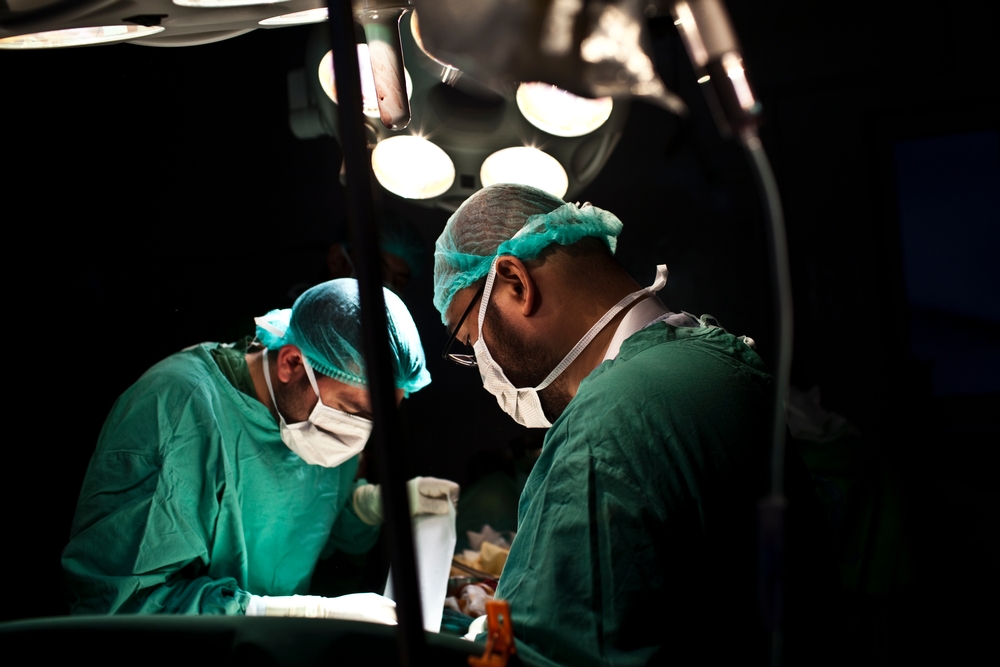Orthopedic Surgeon
MSF works with qualified, specialist, motivated surgical teams who provide high-quality care for patients.
Our surgical projects deliver high-quality standardised care (protocols, hygiene, technical platform and medicinal products) and, despite the unstable or remote settings in which we work, MSF provides the appropriate expatriate and local human resources to ensure the provision of high-quality care for patients.
Our need for orthopaedic surgeons is increasing and critical for our projects because:
- They contribute their expertise to the overall care of patients.
- They also play a role in training and in sharing expertise with local doctors.
MSF’S ORTHOPAEDIC SURGERY PROJECTS
Trauma centre in Burundi
MSF is currently working in Bujumbura, the capital of Burundi, providing emergency orthopaedic care.
Trauma centre in Haiti
The MSF trauma centre in Tabarre, Port-au-Prince, is a major referral centre exclusively dedicated to acute surgical and trauma care. MSF opened this centre following the devastating earthquake in 2010 and it has remained open due to the unstable context and the low capacity of local facilities to treat trauma cases in Port-au-Prince.
The hospital (121 beds) carries out more than 5,500 procedures every year for patients who have been victims of accidents or violence.
MSF has put in place strict standards that make it possible to perform complex orthopaedic surgery (such as osteosynthesis) and emergency surgery.
Medical team
The medical team comprises expatriates and local employees who work together in the orthopaedic, general surgery and anaesthesia units, in intensive care and in the emergency unit.
In addition, the medical team works with the nurse anaesthetists from the operating room and inpatient department, with the physiotherapists, pharmacists and technicians, the X-ray supervisor and the project psychologist.
Role of the orthopaedic surgeon
- Managing the orthopaedic procedures in close cooperation with the paramedical and medical team.
- Coordinating the orthopaedic activities for which they are responsible with their surgical team and in liaison with the emergency unit and inpatient departments and the operating room.
- Providing care for inpatients and follow-up consultations.
- Providing continuous training for the medical team and sharing their expertise according to the team’s level.
Profile
- A certification in orthopaedic surgery.
- Desire to share knowledge, skills and experience with colleagues.
- Experience in team management, training and supervision.
- Available for a minimum period of six weeks.
- Ability to adapt to working with sometimes limited resources.
- Adhere to the MSF Charter and to our managerial values: Respect, Transparency, Integrity, Accountability, Trust and Empowerment
- Adhere to our Behavioral Commitments
-
Willingness to leave on mission without your partner and/or family and to work in an unstable environment
- Good French and English language skills
MSF offers
- Preparation for departure on assignment, briefing and debriefing.
- Health insurance.
- Transportation, vaccinations, visa, and accommodation expenses.
- Monthly salary and per diem.
- A humanitarian medical training offer.
- Personal follow up of humanitarian competencies.
- A dynamic, stimulating and multicultural work environment.

A QUALITY WORK ENVIRONMENT
The MSF surgical care policy covers all surgical and anaesthesia care and encompasses:
- General surgery.
- Obstetrics and gynaecology.
- Orthopaedic surgery.
- Specialised surgery.
The MSF surgical policy provides for all the different settings and their constraints by listing the minimum conditions needed to deliver the best quality of care possible.
All MSF employees working within our surgical projects must follow this policy.
Read the MSF surgical policy
Read the orthopaedic antibiotic protocol
Read the good practices in orthopedic surgery
Read the guide on osteosynthesis
The fixation material available: Sign (manual/technical), Omega-3-DHS, Gamma Nail, GEXFIX
Read the amputation protocols

OUR PUBLICATIONS
MSF Publications
- Current Trauma Reports: Surgery with Limited Resources in Natural Disasters: What Is the Minimum Standard of Care?, Mar. 2018
- BMJ: Inter-rater and intrarater reliability of the South African Triage Scale in low-resource settings of Haiti and Afghanistan, Mar. 2018
- PLOS one: Before the bombing: High burden of traumatic injuries in Kunduz Trauma Center, Kunduz, Afghanistan, Mar. 2017
- Surgery 2017: Sex disparities among persons receiving operative care during armed conflicts, Mar. 2017
- BMJ Global Health: Is the South African Triage Scale valid for use in Afghanistan, Haiti and Sierra Leone?, Jun. 2017
- World Journal of Surgery: Are American Surgical Residents Prepared for Humanitarian Deployment?: A Comparative Analysis of Resident and Humanitarian Case Logs, Aug. 2017
- World Journal of Surgery, Operative Procedures in the Elderly in Low-Resource Settings: A Review of Médecins Sans Frontières Facilities, Dec. 2014
- International Orthopeadics (SICOT), Saving life and limb: limb salvage using external fixation, a multi-centre review of orthopaedic surgical activities in Médecins Sans Frontières, July 2014
- Article in Press, Surgical skills needed for humanitarian missions in resource-limited settings: Common operative procedures performed at Médecins Sans Frontières facilities, February 2014
- World Journal of Surgery, Quality of Care in Humanitarian Surgery, April 2011
- Health in Action, Improving Effective Surgical Delivery in Humanitarian Disasters: Lessons from Haiti, April 2011
- ARCH SURG, Operative Mortality in Resource-Limited Settings, The Experience of Médecins Sans Frontières in 13 Countries, August 2010
- Conflict and Health, Surgical care for the direct and indirect victims of violence in the eastern Democratic Republic of Congo, May 2010
- Lancet, Rethinking surgical care in conflict, January 2010
International collaboration
MSF works with physiotherapists from Handicap International. Its role is to supervise local physiotherapists and train them.
Every year, MSF participates in conferences organised by SICOT (India, Dubai, Brazil, China, Italy).
MSF medical specialists are regularly invited to participate in various platforms:
- School of Public Health, John Hopkins, Baltimore, USA
- OMS, Genève, Suisse
- International Congress of Surgeons, Trinidad Tobago
- Philippines Orthopedic Association, Manille, Les Philippines
- European Congress of Traumatology and Emergency Surgery, Genève, Suisse
